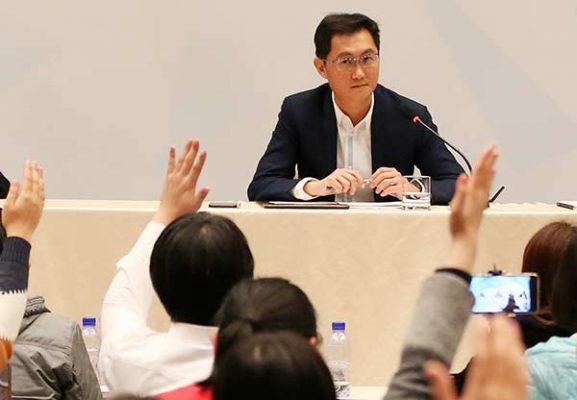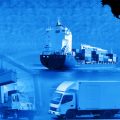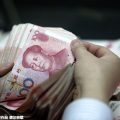
China should introduce favorable policies to turn the Guangdong-Hong Kong-Macao Bay Area into the cradle of China’s “Silicon Valley”, national legislator Ma Huateng said on Friday.
Constructing a world-class high-tech Bay Area is critical to implementing China’s innovation-driven strategy, said Ma, who also chairs internet giant Tencent, at a news conference ahead of the fifth session of the 12th National People’s Congress, which begins on Sunday.
The proposal is also conducive to the long-term prosperity of the region, he said, especially for Hong Kong and Macao, which have untapped potential to deepen economic interdependence with the mainland.
Ma said the area is home to China’s leading tech industries and financial services, as well as being a manufacturing hub, perfectly positioning it to become a global innovation center.
“Hong Kong will take the lead among these cities in international transportation, as well as in accounting and financial, legal and other commercial services. Dongguan specializes in manufacturing. And Shenzhen hosts China’s tech giants, such as Tencent and Huawei, as well as drone maker DJI,” he said.
To bolster growth, Ma encouraged the adoption of preferential tax rebate policies in the area and loosening entry permission between the mainland and Hong Kong to retain talent.
Guangdong Governor Ma Xingrui, speaking during the local political consultative and legislative sessions, said the three places will work together on building a world-class city cluster in the region this year.
The Bay Area is one of China’s most affluent regions. In 2016, Guangzhou, Shenzhen and Hong Kong each either reached or neared 2 trillion yuan ($290 billion) in gross domestic product.
Construction of the Hong Kong-Zhuhai-Macao Bridge, the world’s longest cross-sea bridge, connecting Zhuhai in Guangdong with Hong Kong and Macao, is expected to be finished by next year, further integrating the region, he added.
Lin Jiang, an economics professor at Sun Yat-sen University, said Ma’s idea to turn the Guangdong-Hong Kong-Macao Bay Area into China’s “Silicon Valley” is “realizable”, as regional cooperation is becoming closer with preferential policies from the Guangdong Free Trade Zone.
“The Bay Area can serve as the country’s experimental field for new technologies and emerging industries.”


